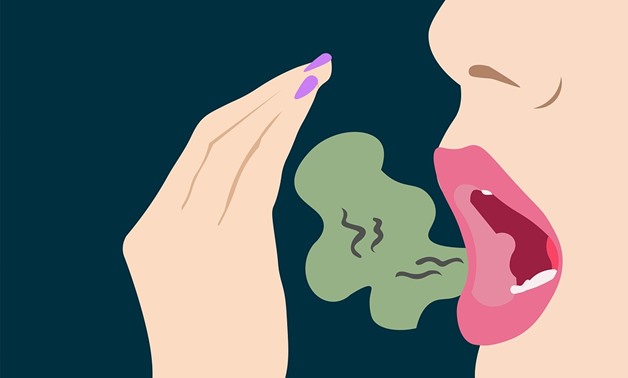
You roll over and whisper, “Good morning.” She recoils with a gasp as you unroll across the pillow. Nothing ruins sleep like morning breath. And the problem: where does it come from? You brushed your teeth last night. You don’t have gastric disease. Why does your breath smell like an open tin of mackerel in a hot subway?
Read on for six things you need to do to stop mornings and the fastest way to fix it.
Sure, you ran the toothbrush around your mouth for two seconds. But any leftover food becomes bait for bacteria.
“Bacteria feed on food particles,” says Dr. Lowenberg, Litucci & Kanter, of NYC-based cosmetic dentists. Brian Kanter says, “And anaerobic respiration promotes bad breath by releasing volatile sulfur compounds.”
Translation: bacteria eat your leftovers and leave you waking up with a rotten egg stench.
So if you’ve got an important morning ahead of you, be thorough: floss, brush and use an antiseptic rinse. Leave no piece behind.
Stop your mouth breathing.
The most critical thing to know about morning breath: Saliva is your friend.
“Saliva is high in oxygen, which kills bacteria,” Kanter says. “It breaks up food particles and debris and removes them from your mouth when you swallow.”
The problem is that saliva production slows down while you sleep. And if you’re breathing through your mouth, you’re creating a dry zone where bacteria can grow.
The fix is as simple as turning onto your side or stomach. Or you may need a decongestant. However you fix it, a closed mouth will be less sour the next morning.
If dry mouth is bad, mouthwash is your friend. But not the kind that accidentally sets you back.
“Wet your mouth,” Kanter says. “Use more water. And use a non-alcoholic mouthwash the night before because alcohol dries out your mouth—and that’s the last thing you want.”
Look for an alcohol-free version of any mouthwash you use. And, while we’re at it, don’t try to cure your morning breath by washing it down with vodka.
Besides loving a dry mouth, bacteria enjoy an acidic place to feed and multiply.
“Bacteria are more likely to accumulate in an acidic environment,” Kanter says. “So what you can do is gargle with baking soda, because that’s the base.”
You’ll find baking soda in many dental products, and they all help cut acid and eliminate bad breath.
You’re flossing, you’re brushing, but you still smell like a bull mastiff. Turn your attention to your tongue.
“The tongue has a lot of surfaces where food particles can settle,” Kantor says, “so you want to use a tongue scraper and keep your tongue really clean.”
Also, in the morning, taking your toothbrush to your tongue is a quick way to undo any overnight damage, or at least disperse the smell of toothpaste.
Finally, when you’ve made it daylight and you really want to kick morning breath, hit it with a one-two punch: brushing your teeth, then brunch.
Brushing, flossing and rinsing clears the root causes of your bad breath. Eating something gets your saliva flowing. Think of it as turning on the faucet to flush the drain.
“Every time you eat, you increase salivation,” Kantor says. “Crunchy fruits and vegetables are great. They stimulate saliva flow and they mechanically clean the teeth and remove surface stains.”
Translation: An apple a day may not keep the doctor away, but one morning might invite you back for another nap.

